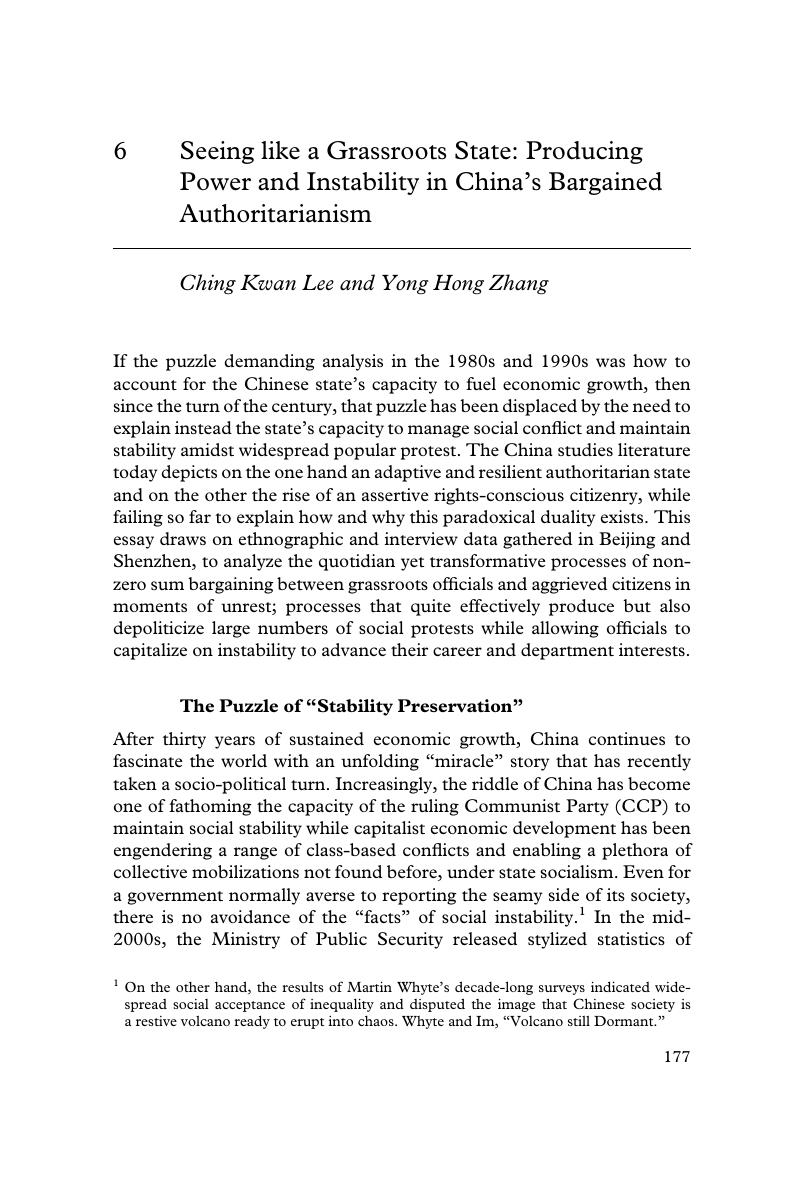Book contents
- To Govern China
- To Govern China
- Copyright page
- Dedication
- Contents
- Contributors
- Introduction: Beyond Implicit Political Dichotomies and Linear Models of Change in China
- I Leadership Practices
- II People’s Government
- III Expedients of the Local State: Bargains and Deals
- Buying Order
- 6 Seeing like a Grassroots State: Producing Power and Instability in China’s Bargained Authoritarianism
- Selling off Entitlements
- IV Governance of the Individual and Techniques of the Self
- Index
- References
6 - Seeing like a Grassroots State: Producing Power and Instability in China’s Bargained Authoritarianism
from Buying Order
Published online by Cambridge University Press: 25 October 2017
- To Govern China
- To Govern China
- Copyright page
- Dedication
- Contents
- Contributors
- Introduction: Beyond Implicit Political Dichotomies and Linear Models of Change in China
- I Leadership Practices
- II People’s Government
- III Expedients of the Local State: Bargains and Deals
- Buying Order
- 6 Seeing like a Grassroots State: Producing Power and Instability in China’s Bargained Authoritarianism
- Selling off Entitlements
- IV Governance of the Individual and Techniques of the Self
- Index
- References
Summary

- Type
- Chapter
- Information
- To Govern ChinaEvolving Practices of Power, pp. 177 - 201Publisher: Cambridge University PressPrint publication year: 2017
References
- 2
- Cited by



